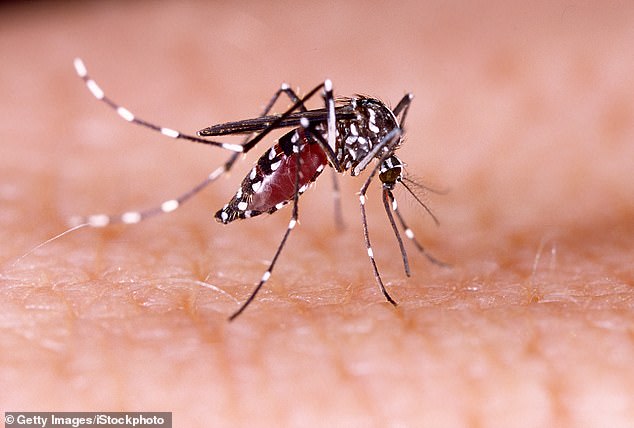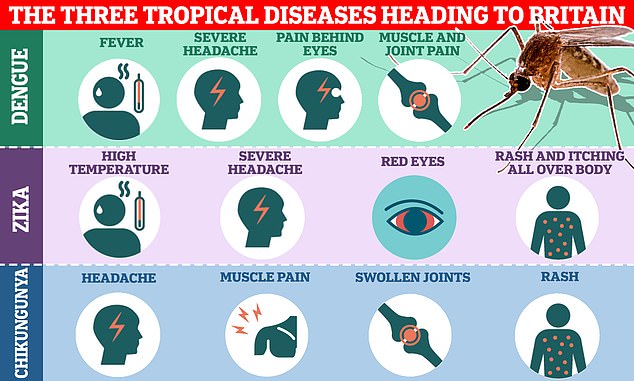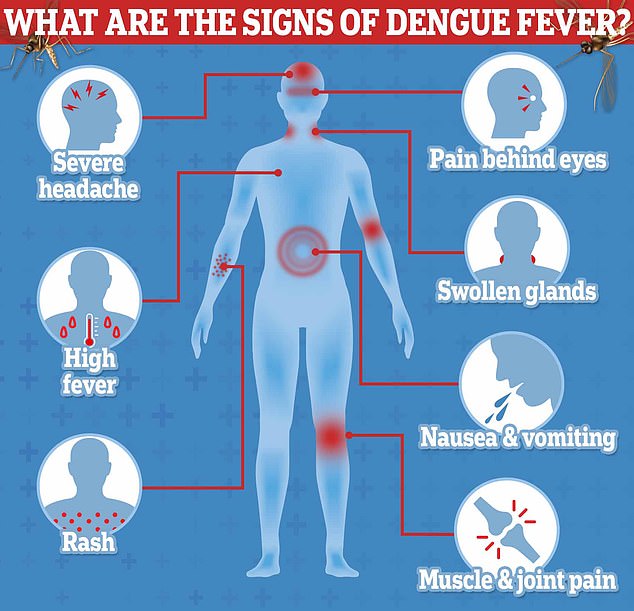Holidaymakers jetting off to France could be at risk of contracting a potentially fatal virus that causes agonising body pains and, in severe cases, organ damage, officials have warned.
European health officials have issued an alert about eight local cases of Chikungunya—which is normally spotted in tropical climates like South America and India.
The Chikungunya outbreak has occurred far earlier in the year than is typical and this could indicate the mosquitoes that carry Chikungunya are becoming increasingly at home in France thanks to climate change, the warning said.
The authorities have urged visitors to take precautions against the spread of this and other mosquito-borne pathogens.
It comes weeks after UK vaccine chiefs suspended a newly approved jab for the Chikungunya virus from being given to people aged over 65, after reports of two deaths and 21 severe reactions related to the jab.
Officials also warned that Europe has also seen a rise in dengue—another mosquito-borne disease historically known as ‘breakbone fever’ due to the intensive bone pain—with 304 local cases last year.
This is a more than double the 130 recorded in 2023 and quadruple the 71 recorded in 2022.
West Nile virus—another pathogen spread by invasive mosquitoes and which was detected in UK insects for the first time earlier this year—is also surging.

France is currently grappling with an outbreak of potentially fatal Chikungunya virus, with eight local cases detected since May. Stock image

UK vaccine chiefs have suspended a newly approved jab for over 65s after reports of two deaths and 21 severe reactions
Last year 1,436 cases of West Nile Virus in people were reported across 212 European regions encompassing 19 countries.
This compares to 713 cases across 123 regions in 2023, according to the European Centre for Disease Prevention and Control (ECDC).
As such ECDC officials have warned travellers to take precautions when visiting areas where invasive mosquitoes can be found.
These include ‘applying mosquito repellent on exposed skin, wearing long sleeves and trousers, especially during dawn and dusk when mosquito activity peaks, and sleeping under bed nets or in rooms that are screened or air-conditioned if possible’.
French public health officials have also urged guidance to citizens in response to rising numbers of invasive mosquitoes, such as covering or emptying water containers the insects use to breed.
Similar warnings have also been issued in Belgium after environmental scientists reported increased numbers of tropical mosquitoes caught in traps.
While most disease spread by mosquitoes cannot be spread person-to-person, experts have said such cases have the potential to spread further outbreaks.
An infected person can travel to a different region and be bitten by a mosquito there, which can then spread it to locals and other tourists, creating a chain of cases.

Dengue is a potentially deadly virus passed to people by infected mosquitoes and was historically known as ‘breakbone fever’
Leading British experts have repeatedly warned of the ‘slow march north’ of pests that carry tropical diseases reaching the UK and becoming established.
Established means that the bugs that carry the pathogens have formed a self-sustaining population that natively breeds in Britain.
Locally transmitted cases of tropical diseases differ from imported cases, where people are bitten by a mosquito overseas and then fall ill upon returning to their home country days later.
Earlier this year, Britain recorded a record number of imported dengue cases with 904 in 2024.
Dengue patients often experience an abrupt onset of fever, followed by severe headache, pain in the eyes, joints and muscles as well as nausea and vomiting.
The disease was historically known as ‘breakbone fever’ in the 1700s because the pain it caused was so severe people felt like their bones were breaking.
Experts from the UK Health Security Agency have echoed advice from their European counterparts urging tourists to take steps like using insect repellent while aboard to reduce their risk of falling ill.












